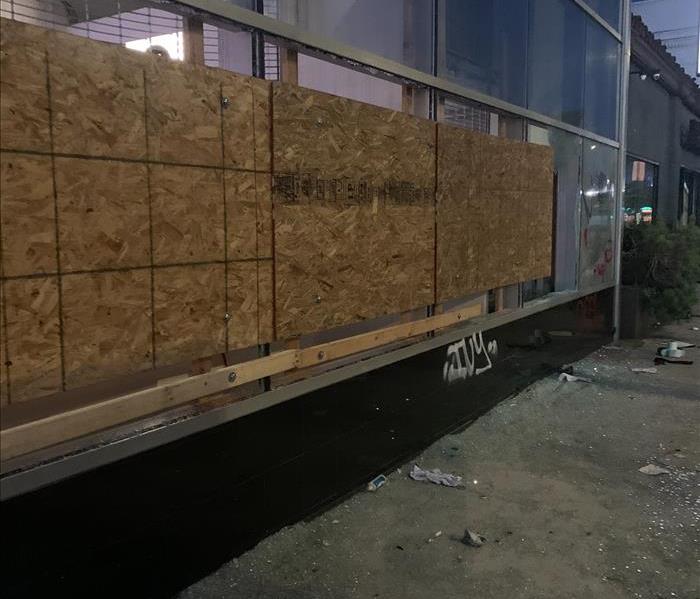How Do I Keep my Building Secure After a Fire?
10/5/2022 (Permalink)
When a fire happens, you want to get the building boarded up as soon as possible. This helps prevent looting and protects your property from further damage. But how do you know what type of boarding-up is best for your situation?
What is a Board-up?
A board-up is a temporary covering for a broken window or door. It's usually made of plywood or other wood products, and it's used to keep intruders out and preserve the crime scene. A board-up isn't meant to be a permanent repair; it serves as a sort of security fence until you can get your building repaired.
Boarding Up After a Fire
To secure a building after a fire, you'll need to place board-ups on the windows. These are usually temporary. They'll be removed when you repair the damage and reoccupy your building.
In addition to securing your property after a fire, board-ups are also used to keep looters out of your business. After any major disaster such as Hurricane Katrina or 9/11 in New York City, many people attempted to break into abandoned buildings with the hope of finding valuables inside—and some were successful! Boarding up offers one way for owners looking for protection against theft after an event like this happens within their communities.
Are Board-ups Covered by Insurance?
If your building is covered by insurance, the cost of covering up windows and doors may be covered. If your building is not covered by insurance, it may still be possible to have some or all of these costs reimbursed through a claim. This is usually done if the fire was caused by an accident that could have been prevented and resulted in significant damage to your home or property.
Insurance companies will not generally pay for board-ups after a certain amount of time has passed since the fire occurred (usually three months). This means that you must submit any requests for reimbursement within this period. If you want to make sure that everything goes smoothly with your claim, hire an experienced professional who knows how insurance companies operate so they can help guide you through each step of the process as efficiently as possible
What Is Involved in a Board-up?
Board up all the openings in your building with a wood frame to secure them from the outside. You must board up your door as well, so no one can get in or out of your building by going through it. Remove all broken glass and other debris from the building before boarding it up.
If you have a garage, make sure that its doors are also secure with a wooden frame to hold them shut.
If you don't know what to do with your damaged property, remember that it is essential to protect the scene from tampering by looters or vandals. After all, the purpose of boarding up is to prevent people from entering your property and stealing items belonging to you or others who may have been in the building at the time of the fire. If you're concerned about protecting your neighborhood's property values as well as preventing further damage to your building, consider hiring someone who has experience in securing crime scenes.
We hope this post has helped you understand the basics of boarding up after a fire. If you have any questions, please contact us at our 24-hour hotline.

 24/7 Emergency Service
24/7 Emergency Service
